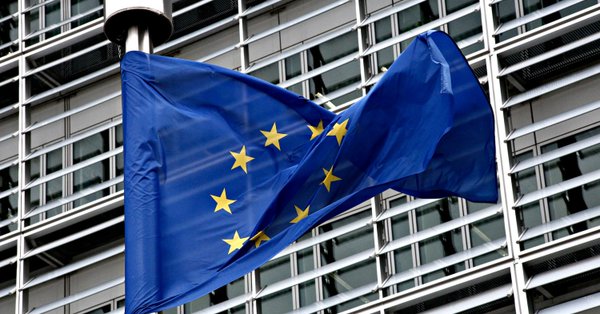UPDATE 1-EU cultivates Asian leaders on trade, climate in message to Trump

The European Union will seek Asian support for free trade, the Iran nuclear deal and fighting global warming at a regional summit on Thursday that includes China, Japan and Russia as a counterbalance to a more protectionist United States.
Leaders from the EU, Switzerland and Norway will welcome 21 Asian counterparts including Chinese Premier Li Keqiang after an EU summit dominated by negotiations over Britain's planned departure from the world's biggest trading bloc.
The 51 gathered leaders are set to show "strong support" for the World Trade Organisation that U.S. President Donald Trump had threatened to quit, and express "profound alarm" about climate change, according to a draft communique seen by Reuters.
Leaders representing 55 per cent of global trade will underline "their joint commitment to open, free and non-discriminatory trade" and "to fight all forms of protectionism", according to the draft.
Norwegian Prime Minister Erna Solberg told the related Asia-Europe business forum that trade had pulled millions of people out of absolute poverty, but that countries could not ignore the environmental impact of economic development.
"One of the hopes is that we will manage to build enough jobs, enough livelihoods while at the same time making sure that we take care of our planet," she said, urging European and Asian nations to embrace green shipping.
Trump says the United States is treated badly in global trade and has blamed the WTO for allowing that to happen. Separately, the United States and China have imposed billions of dollars of tariffs on each other's goods while Trump has also complained about an unfair EU trade surplus with Washington.
On Friday, the EU will sign a free-trade deal with Singapore. The bloc has also reached a free-trade agreement with Vietnam. Vietnamese Prime Minister Nguyen Xuan Phuc told the business forum that he hoped the deal could be ready to enter into force next year.
However, the EU is trying not to side with China against the United States. On Tuesday, EU trade chief Cecilia Malmstrom held talks with U.S. Commerce Secretary Wilbur Ross in Brussels on improving trade relations, though Washington accused the bloc of moving too slowly in negotiations.
FROM STEEL TO CYBER ATTACKS
The EU-Asia summit meeting will also pressure Beijing to combat what Europe says is China's harmful overproduction of steel, and the final statement is set to say that leaders agreed to tackle "excess capacity in industrial sectors", according to the draft, which could still be modified by diplomats.
China, which produces and consumes half the world's steel, has cut some 220 million tonnes of capacity since January 2016. But the EU remains intent on pressuring China to cut more, as well as to remove subsidies - a policy that the West says is aimed at dominating global markets.
European Commission President Jean-Claude Juncker is due to discuss subsidies with Li at a lunch on Friday, diplomats said.
Bolstering the nuclear deal with Iran signed by global powers in 2015, and that Trump withdrew the United States from in May, is also another priority of the summit.
Leaders will call on North Korea to "completely, verifiably and irreversibly dismantle all its nuclear and weapons of mass destruction", according to the draft final statement.
Leaders will re-commit to the 2015 Paris climate pact that also Trump pulled out of, pledging to develop more clean energy.
Another sensitive issue is wording in the final communique on cyber attacks and stopping computer hackers.
Russian Prime Minister Dmitry Medvedev will attend the summit but it is not clear if Moscow, accused by the West of a global hacking campaign, will agree to proposed language calling for an end to such attacks.
Russia denies any responsibility for cyber attacks.
(With inputs from agencies.)
- READ MORE ON:
- national review
- business environment
- investors business daily
- business online
- global cash
- free trade
- EU summit
- free-trade deal
- non-discriminatory trade
- trade relations
- percent of global trade
- free-trade agreement
- unfair EU trade surplus
- EU trade chief Cecilia Malmstrom
- World Trade Organisation










